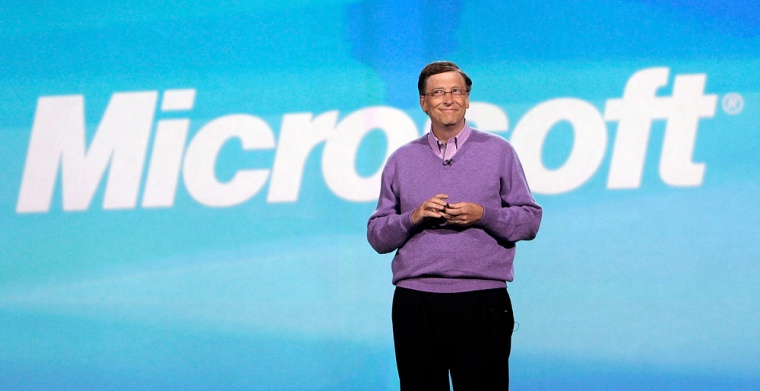Microsoft Corp. might not be the unbeatable giant it once seemed to be, but Chairman Bill Gates made the case Sunday night that its technologies are becoming even more flexible and powerful as they seep into automobiles, Internet-based TV networks and living rooms.
A few months away from leaving his daily duties at Microsoft to focus on his philanthropy, Gates used his traditional kickoff keynote at the International Consumer Electronics Show to highlight how Microsoft is extending the reach of its software beyond desktops and servers, and incorporating alternative inputs like voice and touch.
"The first digital decade has been a great success," he said. "This is just the beginning. There's nothing holding us back from going much faster and much further in the second digital decade."
Traditional PC programs got less airtime than in previous keynotes. That contrast stood out considering not only the tepid response for Microsoft's year-old Windows Vista operating system but also the way that Web-based applications are threatening Microsoft's hold on desktop computing.
Instead Gates bounced from cars — Microsoft's Sync technology for playing music and making phone calls should be in all Ford, Mercury and Lincoln vehicles in the 2009 model year — to the living room. Gates and Robbie Bach, who heads Microsoft's entertainment division, announced an expansion of the high-definition Hollywood movies and TV shows that can be downloaded through the Xbox video game console's online service.
Those include shows from ABC television and other properties of Walt Disney Co. (which, by the way, counts uber-Microsoft rival and Apple Inc. chief Steve Jobs as its biggest individual shareholder).
Gates also explained how Mediaroom, the Internet-based television platform that Microsoft created for telecommunications companies to sell, will work with TNT and Showtime to let users select their own camera angles when viewing sports. For example, a Nascar fan could maintain a constant view from his favorite driver's car, or plug into a certain ringside shot in a boxing match. For now, though, Mediaroom is mainly used for TV services in other countries.
Gates and Bach also talked up improvements in ways for people to interact with software by voice, touch and gesture. In addition to the speech-recognizing functions in Sync-enabled cars, Microsoft plans to soon upgrade the voice-activated information searches available through its subsidiary Tellme. It also will augment the system underlying Surface, Microsoft's computer in a table that responds to users' touches and gestures.
Surface is debuting as a virtual concierge in hotels, but Gates hopes it will soon be used in retail stores. For example, Gates showed how an outdoors-shop customer could use a Surface table to customize a snowboard and transfer an image of his creation to a mobile device simply by putting it on the table.
It was that kind of demonstration that inspired thousands of techies to begin lining up for the speech more than four hours before it started.
What they might not have expected — and what they clearly relished — was a self-deprecating farewell video in which Gates mocked the idea that he would desperately cast about for things to do after retiring as Microsoft's chief software architect this July.
It showed a giddy Gates rapping, trying to lift weights, pleading for a spot in U2 and lobbying for a place on a presidential ticket. The video's cameo appearances from the likes of Brian Williams, Jay-Z, Barack Obama, Hillary Clinton, Al Gore, Jon Stewart, Steven Spielberg and George Clooney provoked uproarious laughter — not a common occurence at a tech conference.
